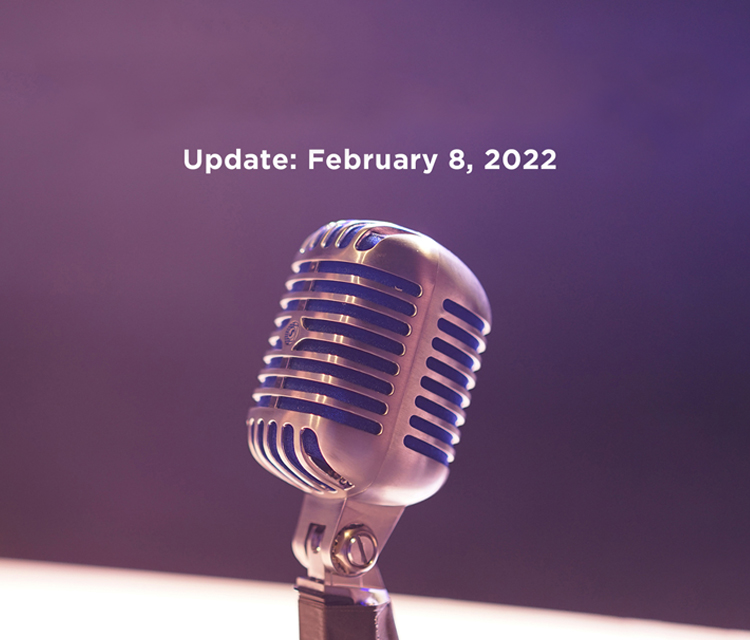As you may or may not know, I’m under a multiyear, exclusive contract with Spotify. Unlike some creators, I don’t have the option of pulling my work from the platform. When the COVID misinformation issue first surfaced, I posted across social media that I was pausing the podcast to learn more about what was happening at Spotify.
On February 1, I explained the pause across social and on my website and committed to learning more about Spotify’s policies and the application of these policies (see post). I also needed to wrestle with the line between misinformation and censoring. If there’s a line—who gets to decide it? Do warnings really help?
I’m always going to stand firmly on the side of free speech, so I had a lot of learning to do.
As stated in the previous post, I’ve never asked Spotify to deplatform or censor Joe Rogan. I wanted Spotify to have a transparent misinformation policy (made available to the public) that balances addressing the complex misinformation issues we face today while respecting free speech. And to be meaningful, I stated that the policy must be applied across the platform without exception. Spotify developed the policy, shared it publicly, and have started to apply it. There’s still a ton of work here. We need to better understand what warnings are effective and what warnings are useless (e.g., there’s interesting new data on the efficacy of contextual versus interstitial warnings).
I also explained that I needed more time to better understand how Spotify thinks about its responsibility as a platform. I first shared concerns with the leadership about Rogan’s content in 2020, and recently I have questioned whether this latest crisis was a stand-alone misinformation issue focusing on a couple of episodes or evidence of a growing values conflict with not just Rogan but how platforms view their responsibilities.
What I’m learning about the podcast cafeteria
I moved to Spotify because I was not comfortable reading ads, and, at the time, host-read ads were the norm in the openly distributed model.
When the podcast first started (before Spotify), I thought I’d give it a try. It was fun talking about a couple of brands that I trust, but that was literally two companies. When people started sending me free stuff to try so I could read ads, I thought to myself, This is not going to work. Spotify seemed like the perfect partner because it has an ad system that allows for producer-read ads.
Now that I’ve experienced being openly distributed and exclusive, I’ve started to think about the podcast world as a big high school cafeteria: You can sit anywhere you want and talk to whomever you please. And, for better and worse, people can pretty much say what they want. It’s a free-for-all.
As a podcaster with an exclusive contract, however, I sit at an assigned table with other exclusive Spotify podcasters. If you want to sit with me and talk, you need to come to my table. And, I’m sitting with Joe Rogan.
Rogan’s comments about the trans community are dehumanizing, and his take on race is often degrading. Furthermore, the clip where Rogan is laughing with Joey Diaz as he brags about demanding sexual favors from young female comedians wanting to perform onstage at Los Angeles’ Comedy Store made me physically sick.
Words matter.
I also believe that podcasters with platforms have a responsibility when it comes to vetting, preparing, and challenging guests. It doesn’t appear to me that The Joe Rogan Experience takes any responsibility for the health information that it puts out in the world, and I do believe that leads to people getting sick and even dying. Given the reach of the JRE, the bar for critical questioning should be high.
I try to live by Elie Wiesel’s ethic: “Never allow anyone to be humiliated in your presence.” I find many of Rogan’s comments to be belittling and humiliating. He has the right to say them, but it makes inviting my community to this table something I’m not willing to do.
If advertisers and listeners support The Joe Rogan Experience and Spotify needs him as the cornerstone of its podcasting ambitions—that’s OK. But sharing the table with Rogan puts me in a tremendous values conflict with very few options.
So, now what?
As I mentioned at the start, I remain under an exclusive contract with Spotify. I’m going to make the best podcasts I can by talking about the issues that I think matter. My commitment to our community doesn’t change. In fact, we’re starting with a conversation with ACLU attorney Ben Wizner about free speech, misinformation, and Big Tech oligarchs.
I’m proud of our podcasts. I’m proud of the conversations, the voices we’ve amplified, the topics that we’ve addressed, and how seriously we take the responsibility.
I missed the podcast and connecting with y’all—I wish there were an easier way.
Thank you for the learning and the support.
Awkward, brave, and kind wouldn’t be important if it were easy.
